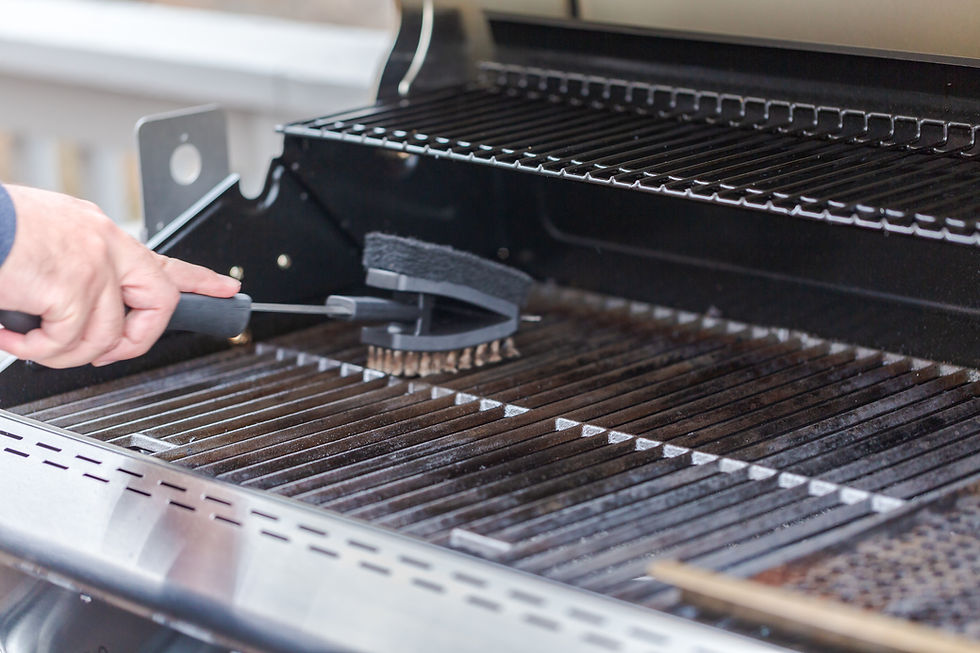How to clean your Outdoor Kitchen
- Josefina Giordano
- May 2, 2020
- 2 min read
Updated: May 3, 2020
Good maintenance of your outdoor kitchen will increase its lifetime.

Cleaning your grill may not be as fun as cooking on it, but regular upkeep is crucial for extending its lifespan as long as possible. Food residue and carbon buildup that remain in your grill for extended periods of time will cause components to break down and even rust, leaving you looking for replacement parts or a new grill altogether. While we recommend cleaning your grill grates after every cook, you should occasionally perform a deep clean on the entire grill to ensure it’s in proper shape.
How To Clean A BBQ Grill

Deep-cleaning is done from the top down, which allows debris and scraped-off gunk to fall into the removable drip pan at the bottom of the grill. That means you shouldn’t start the process unless your grates are completely clean. If you didn’t burn off leftover grease and grime after your last cookout, just follow these simple steps to get up to speed:
Turn all burners to high and close the lid for about 10–15 minutes
Open the lid, turn all burners off, and disconnect the gas if necessary
Allow grill to cool to a moderate temperature of about 250–300 degrees Fahrenheit
Scrub each grate back to front with a grill brush or wadded ball of foil
Take one final look at the grates to make sure there isn’t any stuck-on grime that still need scrubbing. Once they’re totally spotless, you can begin cleaning the whole grill.
How To Clean your Stainless Steel Cabinets

As an owner of a Stainless Outdoor Kitchen, it is imperative that you understand that, regardless of which grade of stainless steel you purchased, to avoid rust and other destructive elements, stainless steel must be cleaned. Next instruction page provides cleaning guidelines.
If your cabinets are powder coated, these instructions apply to the cabinet boxes and other surfaces without the color finish. There are also recommendations for Powder Coat cleaning.
Your stainless steel cabinets should be kept clean and free of food and other debris to help maintain their integrity and to avoid rusting. The following are some important tips on cleaning your stainless steel:
• There are a number of reliable stainless steel cleaners on the market
• Use only alkaline, alkaline-chlorinated or non-chloride cleaners
• Avoid hydrochloric acid (muriatic acid) on your stainless steel
• Always use a non-abrasive cleaning tool such as a soft cloth or plastic scouring pad
• Avoid steel pads, wire brushes and scrapers
• Always clean in the direction of the polishing marks by locating the lines or grain and scrub in a motion parallel to them
• If you do end up using a chlorinated cleaner, be sure to rinse thoroughly and dry it, immediately
• Air dry your equipment
Regular maintenance and cleaning of powder coated surfaces are crucial to maintaining a beautiful cabinet finish. For regions with increased salt contamination and/or chemical exposure, such as the immediate vicinity of a seacoast, the powder coated cabinetry must be cleaned more often.





Comments